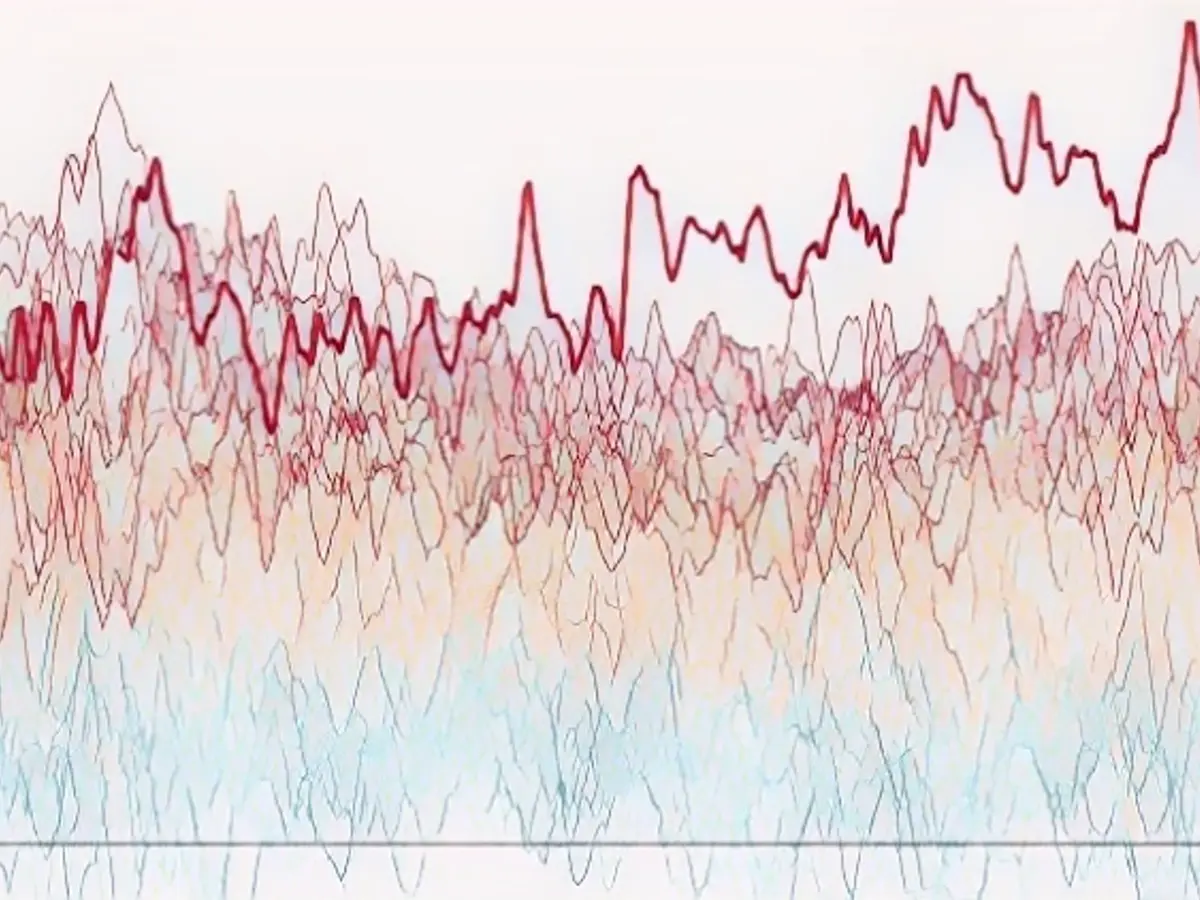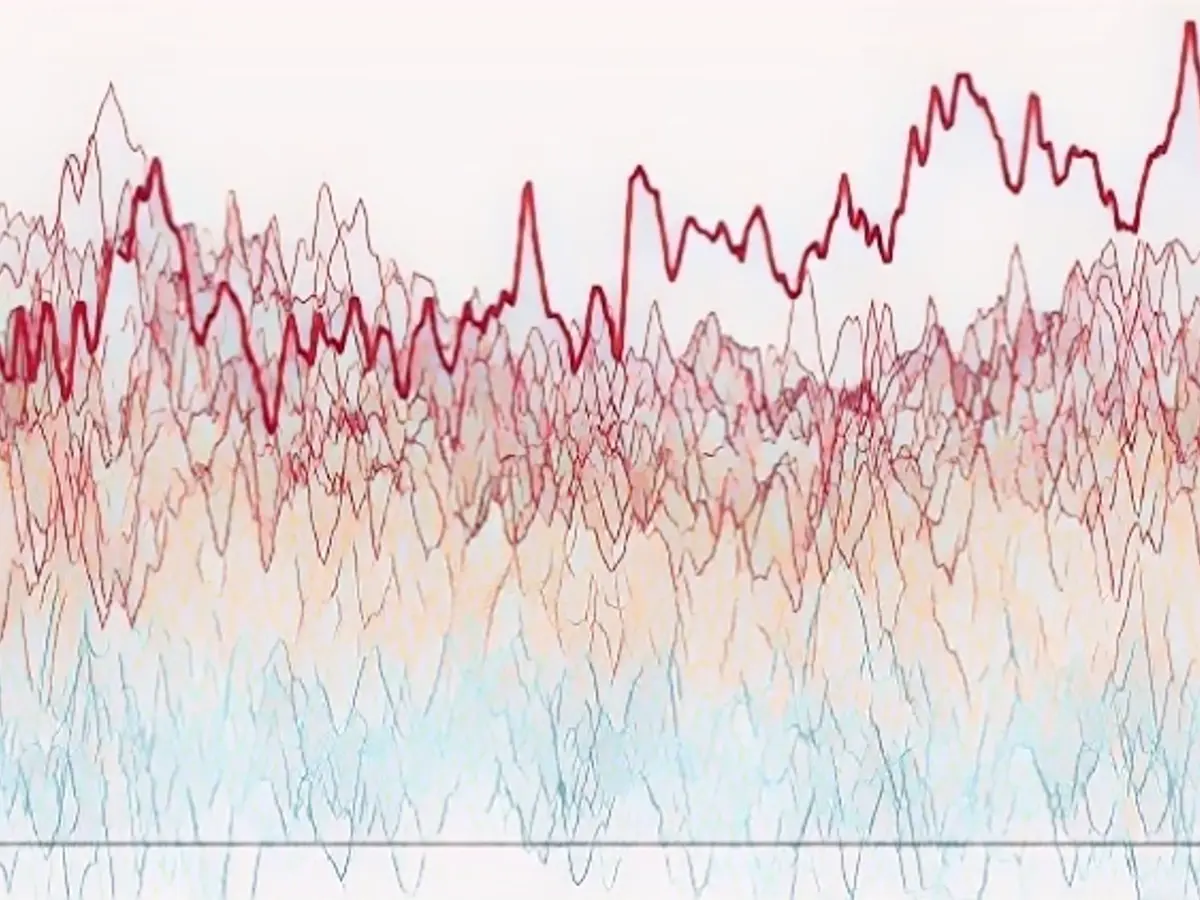2023: Breaking Records and setting a New Standard
Step by step, we've been witnessing record-breaking temperatures. Starting from June, one record-breaking global temperature milestone has followed another, stretching all the way into November. And now, it's official: The first major climate institution has declared that 2023 will go down in history as the warmest year ever recorded. Even if December turns out to be unusually cold, this title will not change.
According to Copernicus, the EU climate change service, 2023 stands out as the hottest year on record since temperature records began in the mid-19th century. The organization points out that it would be nearly impossible for December's temperatures to offset the warming trends we've seen so far. The year that previously held the title for the warmest year on record was 2016, and with nearly a certainty, 2023 will surpass that.
In mid-November, the US National Oceanic and Atmospheric Administration (NOAA) reported a more than 99% chance that 2023 would set a new record for global average temperatures. However, until now, none of the relevant institutions had formally committed to this conclusion.
Samantha Burgess, Deputy Director of the Copernicus Climate Change Service (C3S), commented on the situation. She noted that 2023 had set temperature records for numerous months at once, including November. The exceptional global November temperatures, which even reached over two degrees above pre-industrial levels, contributed to making 2023 the warmest year on record. This phenomenon is in part due to the moderately strong El Niño event that peaked in November 2023, which contributes to global warming by increasing temperatures over the planet.
Could December change the game? According to Copernicus, for 2023 not to be the warmest year, December temperatures would need to be abnormally cold on a global average. However, given the ongoing El Niño event and the natural climate variability, such a scenario is highly unlikely.
The temperatures for 2023 have been consistently higher than any previous year, reaching 1.46 degrees Celsius above the pre-industrial reference period of 1850-1900. This means that, up until November, 2023 had already surpassed the first eleven months of the previous record holder, 2016, by 0.13 degrees.
The ongoing global warming trend is also evident in the Global Carbon Budget report, which showed that global CO2 emissions from fossil fuels such as coal, oil, and natural gas continue to rise. They reached a record level of 36.8 billion tons per year in 2023, an increase of 1.1% compared to 2022 and 1.4% compared to 2019.
The consequence of inaction against climate change is becoming increasingly apparent, and the current year serves as a stark reminder of the importance of robust climate policies. Education and awareness about climate change and its impacts are essential in encouraging sustainable practices and fostering climate-conscious societies.
Source:
Enrichment Data:
For a better understanding of how 2023 came to break all temperature records, take a look at these insights:
- El Niño Impact: The year 2023 was significantly influenced by a moderately strong El Niño event that peaked in November 2023. This natural climate cycle typically contributes to global warming by increasing temperatures over the planet.
- Record-Breaking Temperatures: Both 2023 and 2024 led the pack in breaking temperature records while hovering near or above 1.5°C (2.7°F) above the Earth's temperature in the late 1800s, a time when greenhouse gas emissions were minimal.
- Persistent Warming Trend: The persistence of record warmth through 2023, 2024, and into the first month of 2025 is attributed to ongoing fossil fuel emissions and the resulting buildup of greenhouse gases in the atmosphere. This has led to a clear upward trend in global temperatures, with the last ten years being the ten warmest on record.
- Comparison to Preindustrial Levels: The global surface temperature in 2024 was the warmest on record since recordkeeping began in 1880, with Earth being about 2.65°F (1.47°C) warmer than in the late 19th-century preindustrial average.
- Acceleration of Climate Change: Some scientists argue that global warming is accelerating, citing the higher rate of warming over the last 15 years compared to the previous 40 years. However, not all scientists agree with this acceleration, attributing recent warmth to natural variability and expected climate change.
In light of the ongoing global warming, there's a pressing need for robust climate policies. Education about climate change and its impacts is crucial in encouraging sustainable practices and fostering climate-conscious societies. The current year, marked by record-breaking temperatures, serves as a stark reminder of the consequences of inaction against climate change, particularly in arid regions where droughts and heatwaves pose significant threats.








